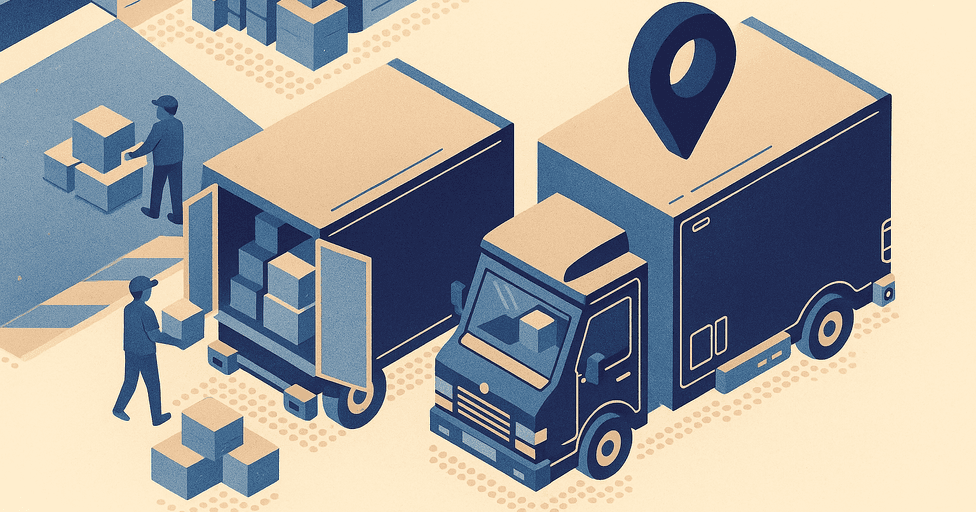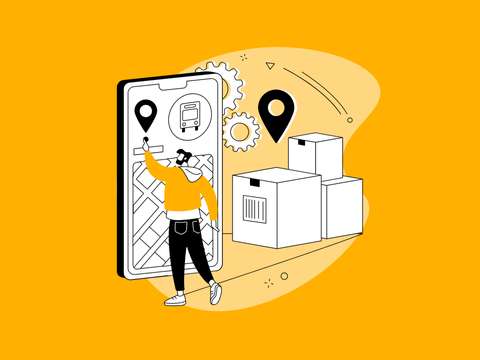If you manage B2B shipments at scale, you already know how complex the day-to-day work can be. Between carriers, labels, delivery incidents, return flows, and internal tracking, operations often end up spread across multiple tools. That’s why many teams turn to transport management systems for B2B to bring structure and control into one place.
This guide gives you a clear view of each B2B logistics platform designed to simplify shipping, returns, and internal order visibility, helping you run a more consistent and predictable B2B operation.
What is B2B logistics software for transport management?
B2B logistics software is a specialized system that allows companies to plan, execute, and control the physical movement of goods between businesses — for example, from a supplier to a manufacturer, from a distributor to a wholesaler, or from a factory to a retail chain.
This type of software acts as a digital control tower where your team can manage all outbound and inbound shipments, return flows, and real-time tracking from one central platform.
📌 Find out the best shipping software for 3PL providers.
7 B2B logistics software platforms for shipping operations, reviewed
1. Outvio
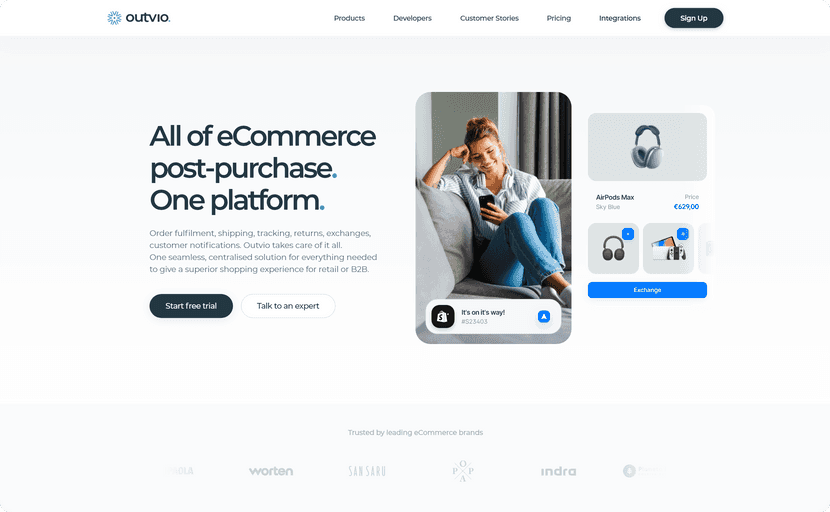
Outvio is an all-in-one post-purchase logistics platform designed to centralize, automate, and control the entire shipping and returns process. It offers powerful, scalable capabilities that make it fully suited for B2B, wholesale, and 3PL environments.
As a logistics control tower, Outvio provides your business with real-time visibility and operational oversight across shipments moving between multiple warehouses, retail locations, or carrier networks.
Key capabilities:
- Smart carrier selection: The system compares costs, transit times, and reliability to automatically select the best courier for each shipment
- Instant carrier integration: Outvio connects with over 100 carriers through a plug-and-play interface that requires no coding
- Bulk processing: Supports high-volume shipping workflows with batch label generation and automation across thousands of orders
- Returns automation: Includes a configurable returns engine that generates return labels and tracks inbound logistics with minimal manual work
- Invoice auditing: Compares freight invoices with expected transport costs to detect billing discrepancies and reduce freight overspend
- Incident management: Tracks delivery exceptions and enables fast resolution from a centralized dashboard.
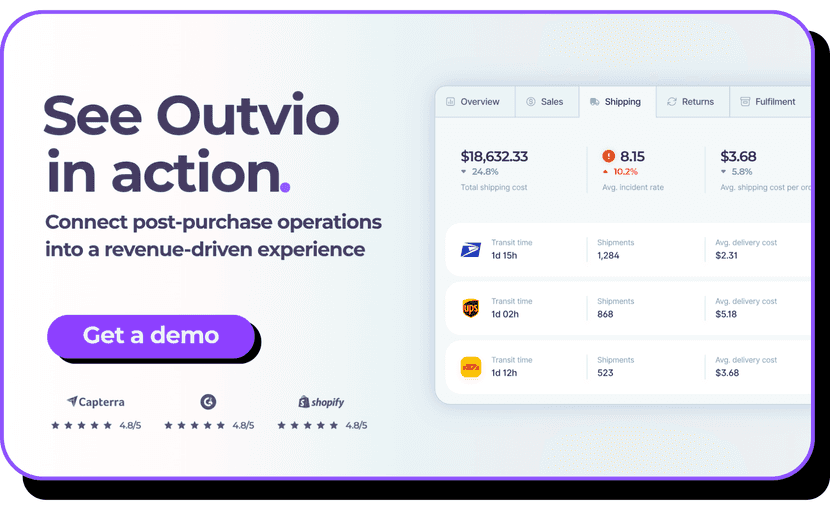
2. Shipium
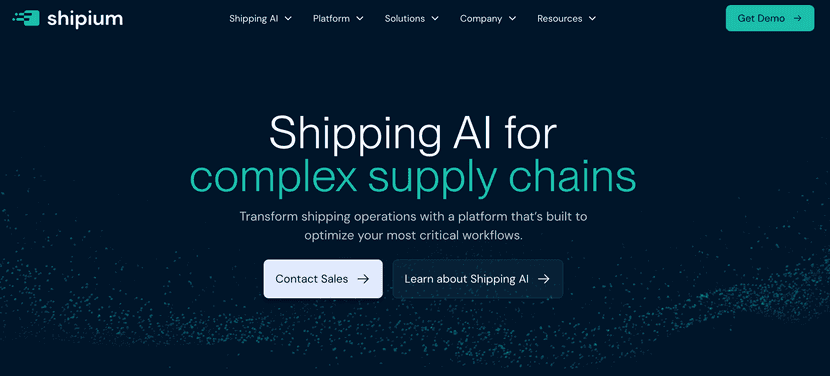
Shipium is a cloud-native, API-first logistics platform built for enterprise-scale shippers, retailers, and 3PLs. Rather than replacing your existing stack, it acts as a powerful orchestration layer that connects to your WMS, OMS, or TMS and optimizes how orders are fulfilled and shipped across your network.
Key capabilities:
- Advanced business rules engine: Automate shipping logic by warehouse, customer, geography, or product SKU.
- Massive carrier coverage: Shipium connects you to 60+ regional and national carriers and gives access to over 200 unique services
- Fast onboarding: Add new carriers in hours instead of weeks, with pre-integrated connections and zero setup fees.
- Elastic scaling: Designed for peak loads, the platform can scale automatically during high-volume periods while maintaining performance.
3. FourKites
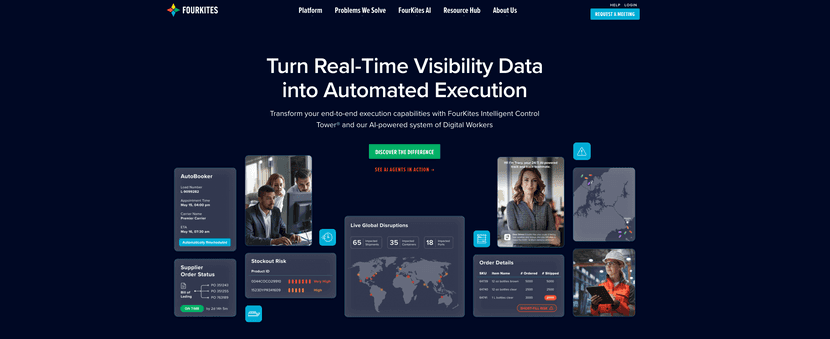
FourKites is a real-time visibility platform that provides predictive, multimodal shipment tracking across truckload, LTL, rail, ocean, and air. It replaces manual “check calls” with proactive alerts and predictive insights, improving your ability to manage complex, global shipping operations with fewer blind spots.
Key capabilities:
- Predictive ETAs: Uses AI and real-time data (traffic, weather, historical trends) to calculate more accurate estimated delivery times
- Exception management: Automatically notifies your team about delays or route deviations, allowing for early intervention
- Multimodal coverage: Tracks shipments across all major transportation modes with a single unified view.
- Collaboration tools: Enables shared visibility across shippers, carriers, and partners
4. project44
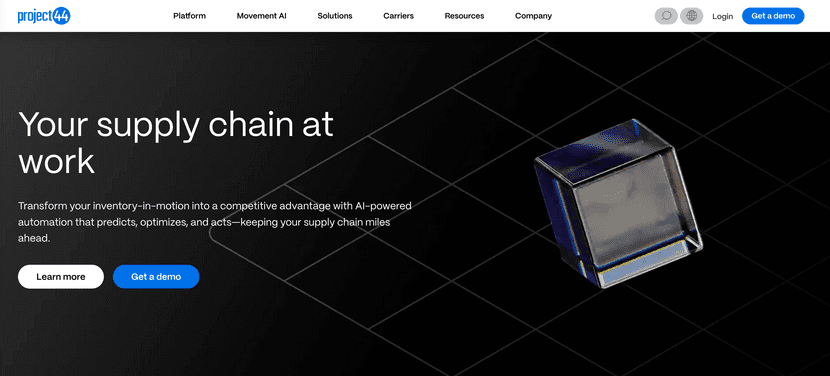
project44 is a global supply chain visibility solution focused on end-to-end shipment tracking and predictive analytics. It is known for its deep connectivity, helping companies centralize tracking across all modes and regions, reduce supply chain disruptions, and feed predictive insights into their ERP or control-tower platforms.
Key capabilities:
- Massive network connectivity: Offers automated real-time tracking for shipments worldwide by integrating directly with carriers’ systems and driver devices
- Predictive intelligence: AI models continually refine ETAs based on real-time and historical variables
- Proactive alerts: project44 delivers immediate notifications about delivery risks or shipment delays so that teams can act before problems escalate.
- Multimodal tracking: Supports full visibility across truck, ocean, rail, and air
5. Descartes MacroPoint
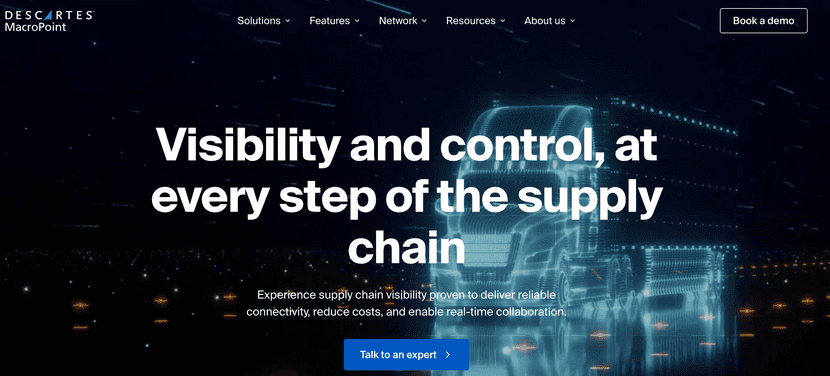
MacroPoint, part of Descartes Systems Group, is a veteran freight visibility platform focused on truckload and LTL shipments. It collects real-time location data from carrier ELDs, mobile apps, and GPS devices.
Key capabilities:
- Live truck tracking: Tracks full and partial loads in real time using carrier-integrated telematics and apps
- Geofencing and automation: Automatically confirms pickups and deliveries by detecting when trucks enter or exit defined zones
- Exception alerts: Sends early warnings when a truck deviates from its route, misses time windows, or loses tracking signal
- Carrier performance dashboards: Helps you evaluate carrier reliability and SLA compliance with clear metrics and reporting.
6. Kuebix TMS
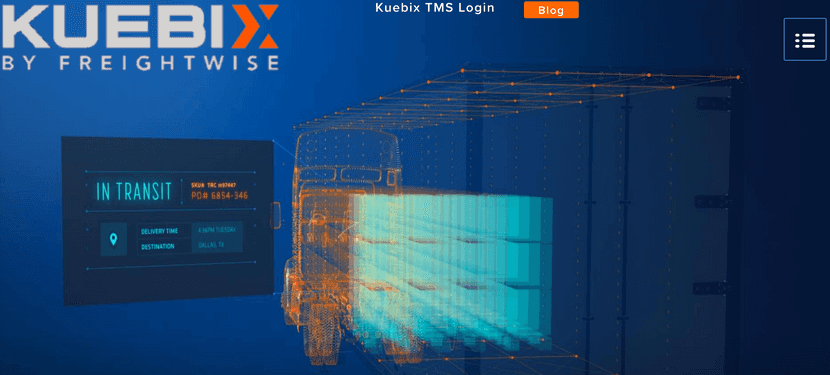
Kuebix is a cloud-based Transportation Management System (TMS) designed to streamline freight operations across LTL, truckload, parcel, and intermodal modes. Now part of Trimble, it supports full lifecycle freight management for shippers of all sizes.
Key capabilities:
- Automated documentation: Generates bills of lading, shipping labels, and freight invoices with minimal manual input
- ERP integration: Supports direct connections with major systems like SAP, Oracle NetSuite, and Microsoft Dynamics
- Load consolidation and optimization: Helps reduce costs through multi-stop routing and combining partial loads into efficient full truckloads
- Custom dashboards and mobile access: Users can monitor shipments, track exceptions, and manage freight remotely
7. ReverseLogix
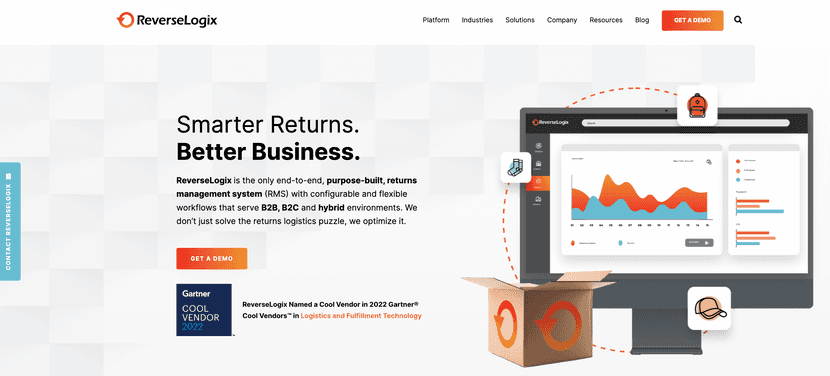
ReverseLogix is a purpose-built returns management system (RMS) focused entirely on reverse logistics for B2B, retail, and omnichannel operations. It helps companies streamline returns, repairs, and refurbishments with automation and intelligence.
Key capabilities:
- AI-powered return routing: Automatically determines how to handle incoming returns
- Repair and warranty workflows: Supports product evaluations, grading, RMA generation, and repair/replace decisions across complex product lines
- Full visibility: Offers end-to-end tracking of each return with internal dashboards and external portals for partners or clients.
- Return analytics: Provides data on return volume, reasons, costs, and recovery value
Core features of a B2B logistics system
1. Shipment structuring
The platform should let you define and control what is being shipped — including SKUs, quantities, weights, and declared value.
In B2B, shipments often involve pallets, mixed goods, or serialized inventory, so the system must handle complexity and scale without friction.
2. Route and fulfillment planning
You need to manage from where to where each order travels. That includes warehouse-level routing, cross-dock flows, and final destinations (which could be retail stores, distributors, factories, or field locations). The software should support multi-origin, multi-destination logic.
3. Carrier management and automation
The platform should automatically select the most efficient and cost-effective carrier based on business rules, service level agreements (SLAs), and real-time constraints like weather or cut-off times.
4. Scheduling and SLA control
Your software should manage lead times, scheduled pickups, and required delivery windows, and alert your team when a shipment is at risk of breaching SLA.
5. Cost tracking and contract compliance
B2B shipping logistics software must track the cost of each shipment by comparing actual freight invoices to contracted rates. It should flag discrepancies, monitor surcharges, and help you identify cost-saving opportunities across carriers and shipping lanes.
6. Returns and exception handling
Your system should support configurable return workflows, automate routing for inbound freight, and manage exceptions with visibility into location, cause, and next steps.
Outvio, your B2B shipping partner for eCommerce
Choosing specialized logistics software isn’t just an operational upgrade — it’s a strategic decision.
Tools like Deliverea, Hedyla, or ShipStation can cover part of the workflow, but if you want full control, real automation, and a professional post-purchase experience, Outvio is the most complete option.
Outvio lets you manage shipping, returns, and RMAs from one place, connecting all your warehouses, carriers, and brands without complex development work. Rules run on their own: the right service for each customer, the right document for each country, the right notification for each brand. All without spreadsheets or repetitive tasks.

